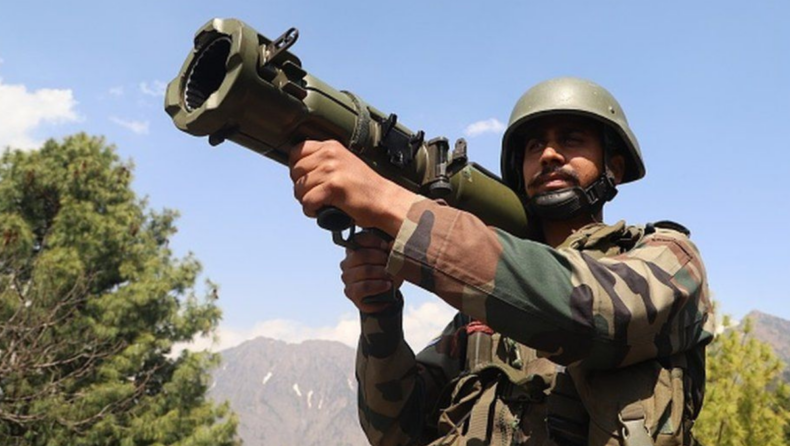Protests have flared up in India in response to a new reform scheme that would hire soldiers for a fixed term in the armed forces.
Protests in the northern state of Bihar burned tyres and blocked key highways on Thursday, calling for the reforms to be reversed. After clashes with protesters, police used tear gas shells in some areas.
The “Agnipath” or Path of Fire programme, that declared on Tuesday, is aimed at applicants aged 17.5 to 21. Successful candidates will serve in the armed forces for four years, after which only 25% will be retained.
The step is intended to reduce the army’s spending on raising salaries and pensions, which consume more than half of its budget and free up funds for modernization of the forces.
According to the government, this will also “enhance the younger profile of the armed forces.”
However, prospective recruits claim that the scheme does little to create jobs and opportunities. On Wednesday, several of them chanted slogans such as “give us jobs or kill us.”
Some military generals and defence experts have also criticised the programme, saying it could weaken the army’s structure and have serious ramifications for national security, especially given the tense borders between Pakistan and China, both being India’s neighbors.
“It’s a foolish move that could jeopardise the security forces efficiency,” says retired Major General Sheonan Singh.
read more- SONU SOOD HELPED BIHAR GIRL WHO HAD FOUR ARMS AND FOUR LEGS
“Saving money can be useful, it should not come at the expense of our forces of defense.
Will a person with four years of training be able to replace an experienced soldier if you go to war with him? This is not how things work.”
India has one of the world’s biggest armed forces and shares a heavily militarized border with Pakistan, as well as a tense standoff with China along its Himalayan border.
With 1.4 million employees, it is also one of the country’s largest employers, with millions of people applying each year.
Every year, approximately 60,000 soldiers retire, and the army holds up to 100 new hirings “rallies” to replace them. However, hiring has been halted for several years.
Officials blame the pandemic, but experts say the force was already stretched thin and struggling to modernise.
This year, 46,000 soldiers will be recruited through Agnipath. They will be trained for six months before being deployed for three and a half years.
They will receive a monthly starting salary of 30,000 rupees ($384; £316) during this time, as well as additional benefits that will increase to 40,000 rupees by the end of the four-year service.
What occurs four years later?
One of the most serious concerns is what happens to the soldiers after their initial term ends.
“I have been actively working over the last two years to join the army”. But then the Agnipath scheme was revealed”, Debojit Bora, a 20-year-old from the northeastern state of Assam, agrees.
“From now, we will be able to work for four years. So, even if I am chosen, I will be out of a job. What am I going to do after?”
This is especially concerning in light of the country’s ongoing job emergency.
According to the Centre for Monitoring Indian Economy (CMIE), an independent think tank, India’s unemployment rate reached nearly 7.83 percent in April.
Millions of Indians lost their jobs when the pandemic hit India in 2020, at a time when the country was already experiencing a prolonged slowdown.
The government has attempted to assuage these fears by announcing that successful Agnipath applicants will be given priority in recruitment to the central armed police forces and the Assam Rifles (an Indian army unit).
Military experts, however, are sceptical. They are concerned that this will lead to a life of frustration and fewer job opportunities for young people.
“Where will an unemployed 21-year-old 10th or 12th grader look for work? Where will a 21-year-old unemployed 10th or 12th grader look for work?
If he applies for police recruitment, he will be told that there are already several other fresh graduates in line, so he should stand at the back of the line” Maj Gen Singh says.
“Furthermore, four years is insufficient time for recruits to adjust to military discipline”, he also commented.












